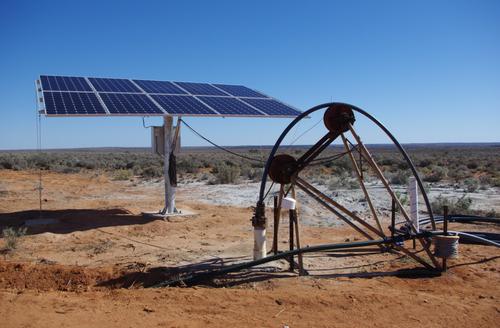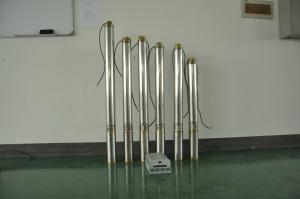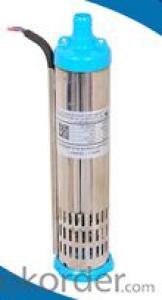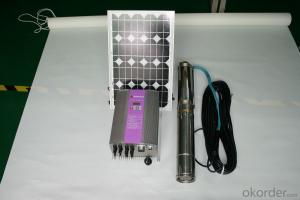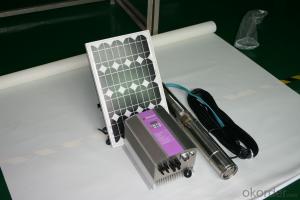5 Hp Solar Borehole Water Pump
- Loading Port:
- Shanghai
- Payment Terms:
- TT OR LC
- Min Order Qty:
- -
- Supply Capability:
- 300 set/month
OKorder Service Pledge
Quality Product, Order Online Tracking, Timely Delivery
OKorder Financial Service
Credit Rating, Credit Services, Credit Purchasing
You Might Also Like
how is the rotor made:
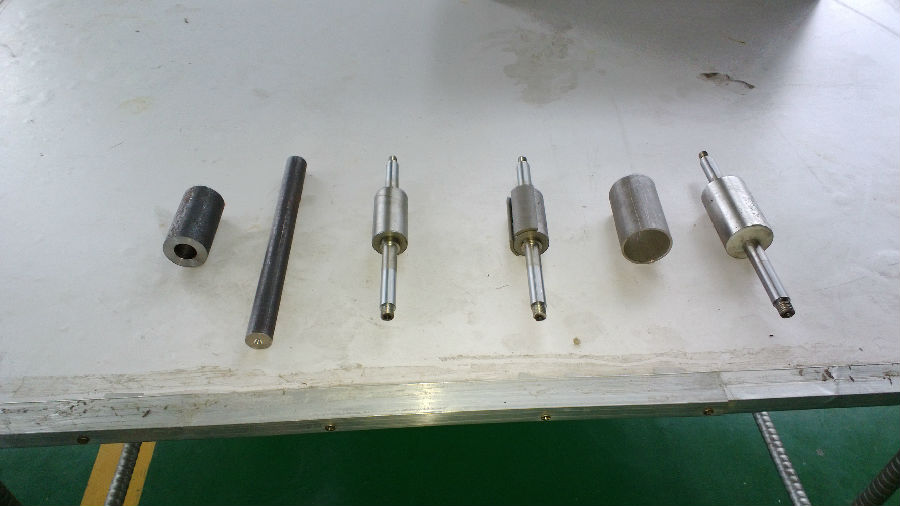
how is the motor made:
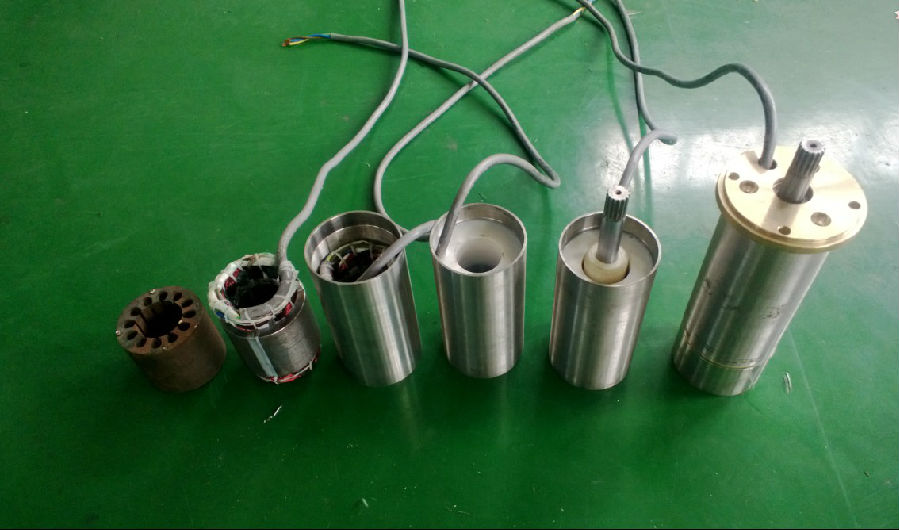
the pump :
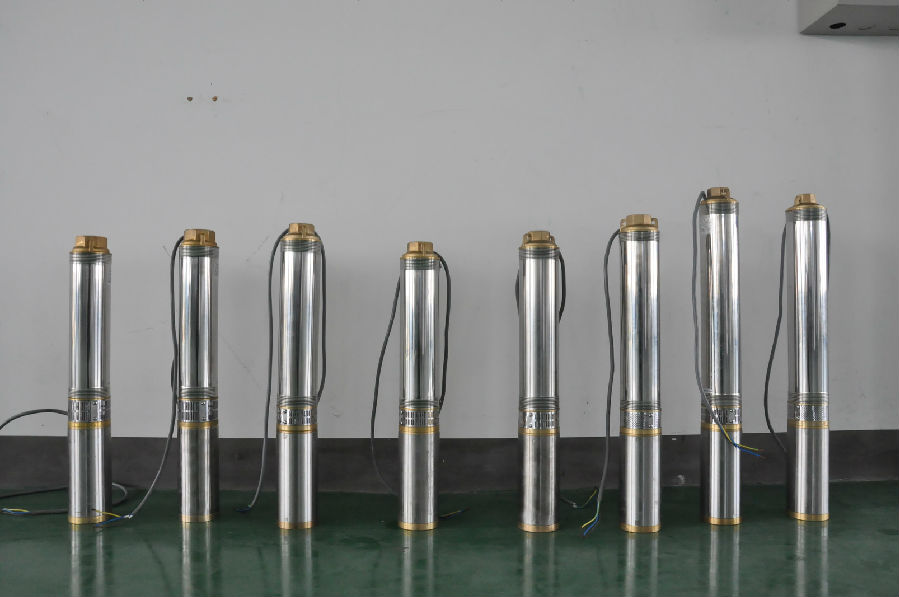
controller terminal connection:
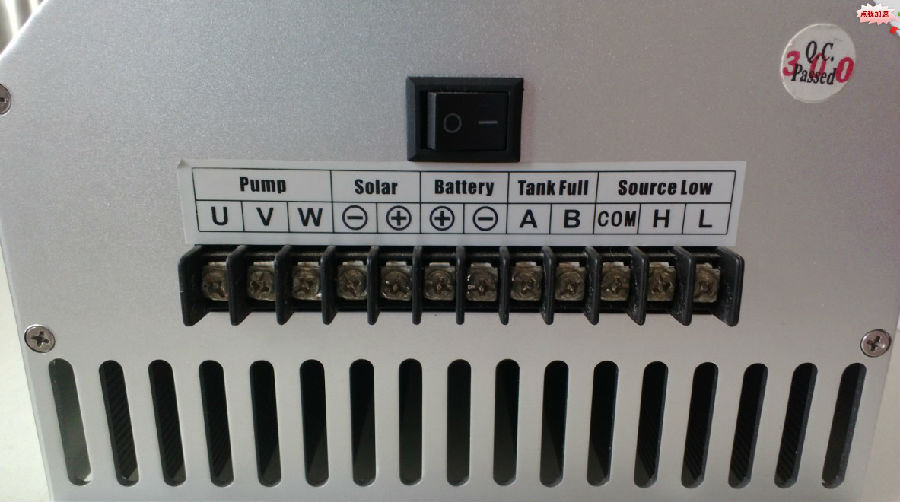
The permanent magnet:
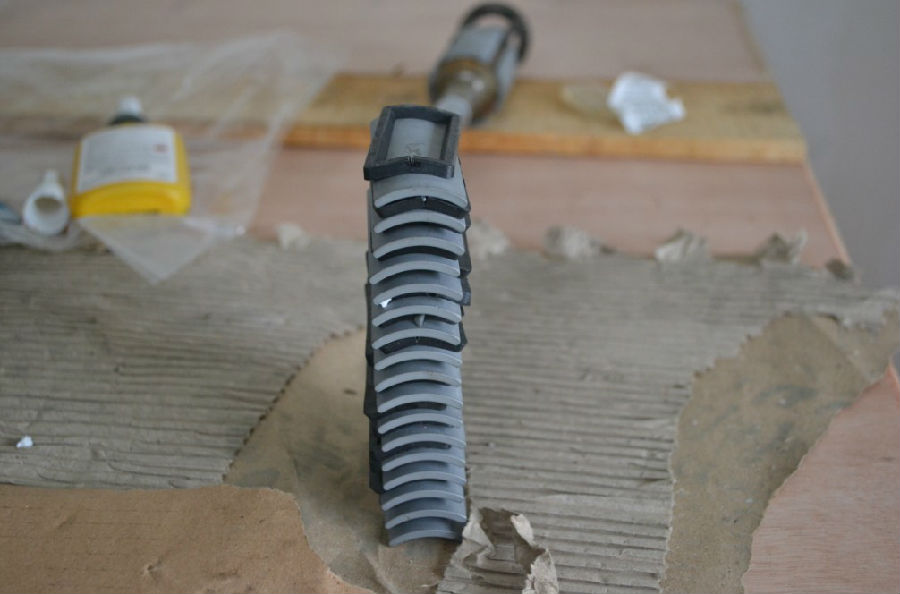
the impeller:
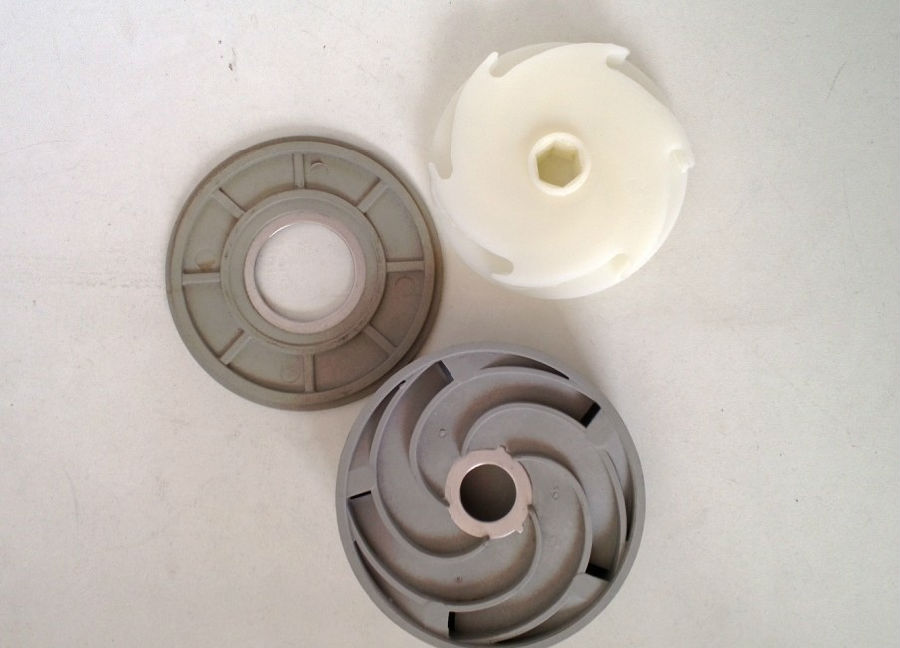
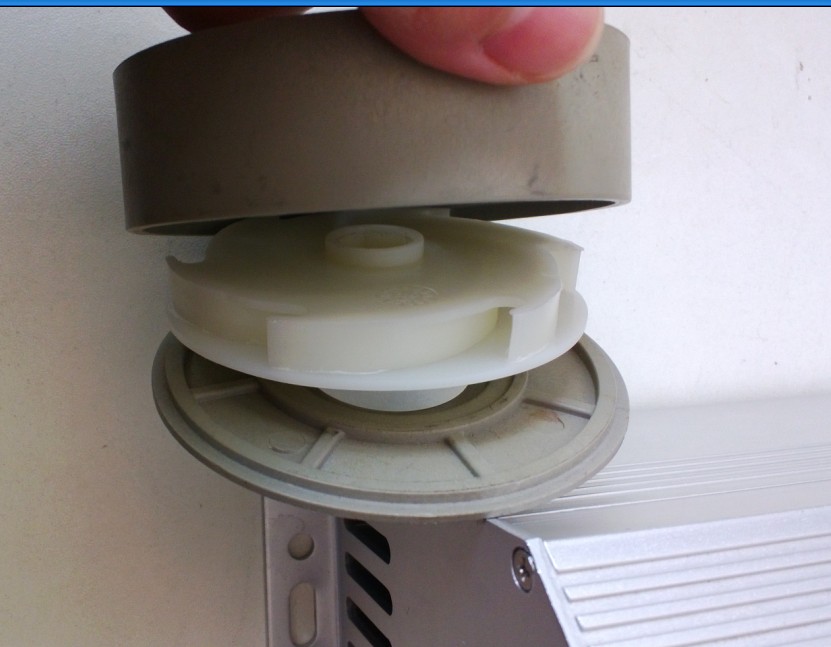
controller box:
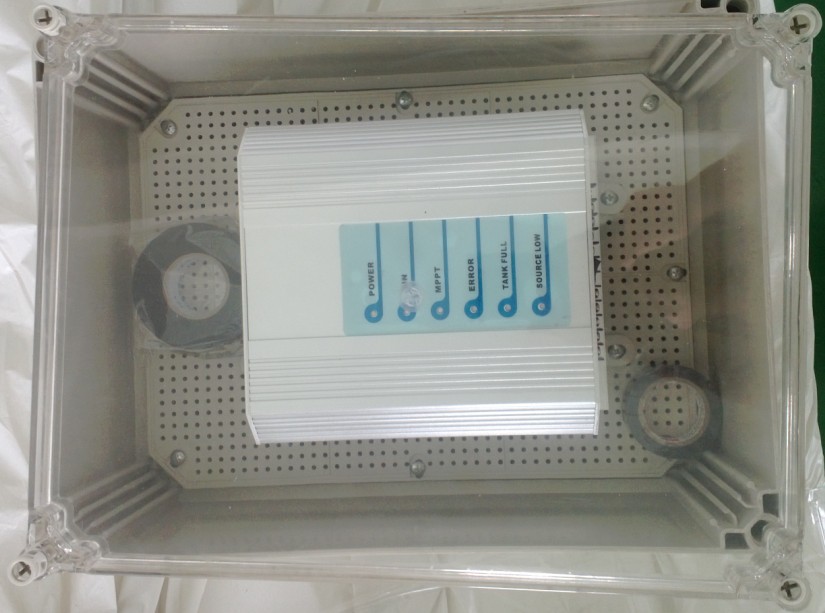
the senors:
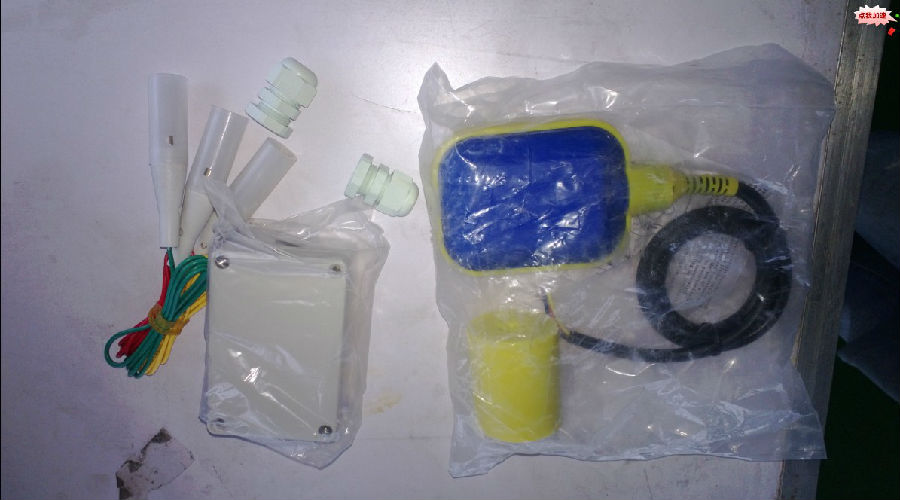
the test:
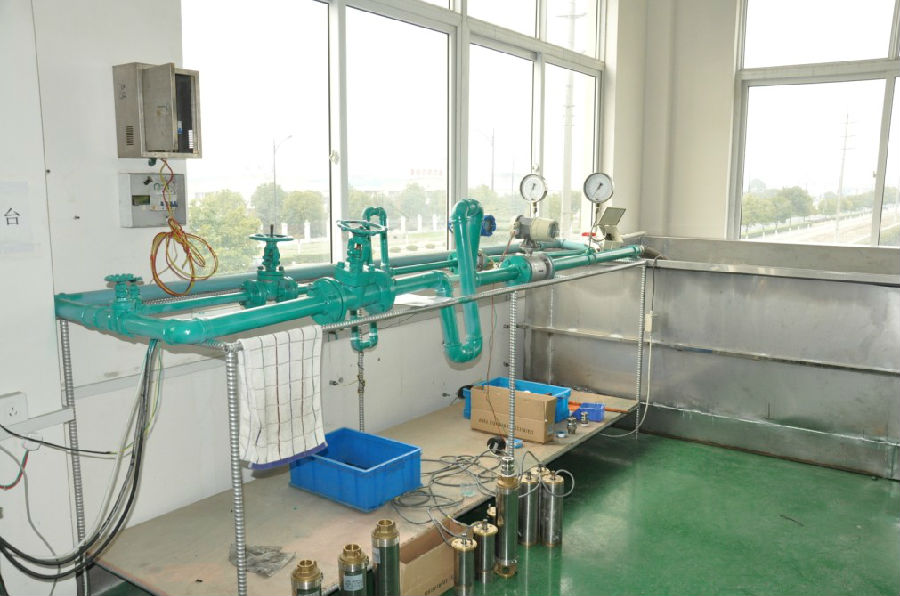
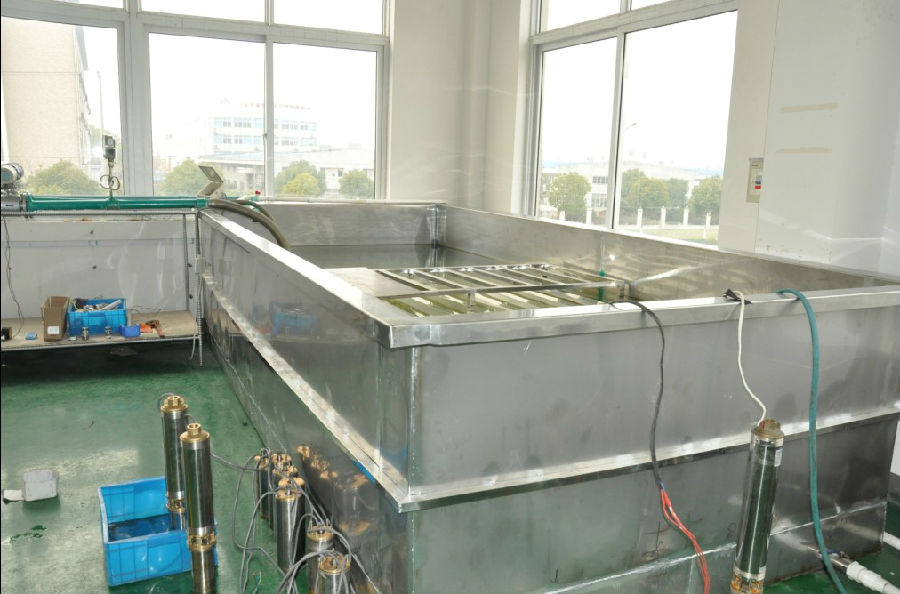
the application:
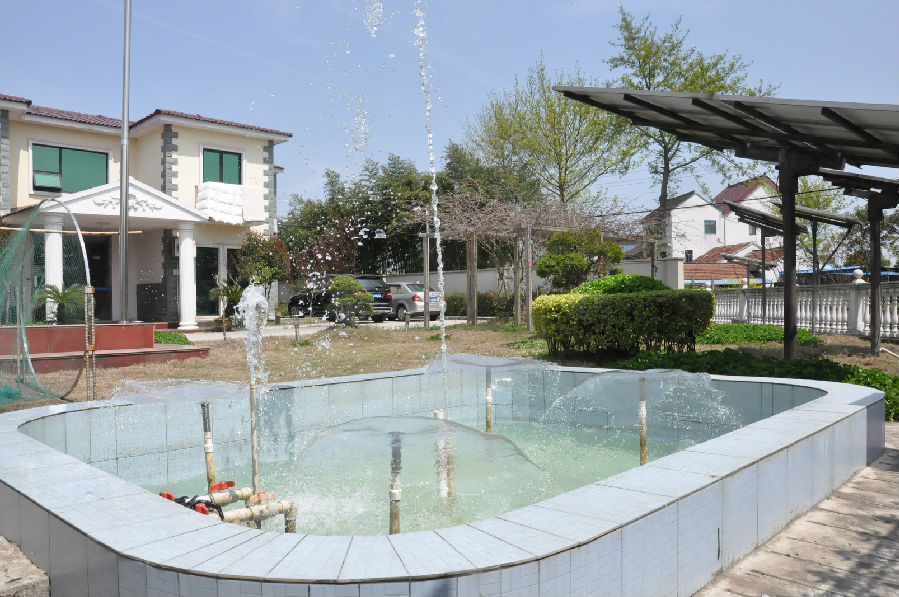
the package:
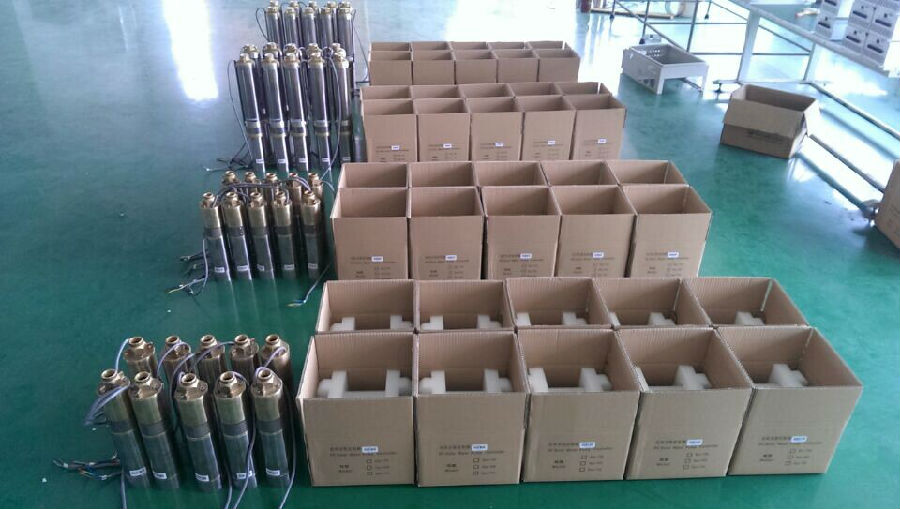
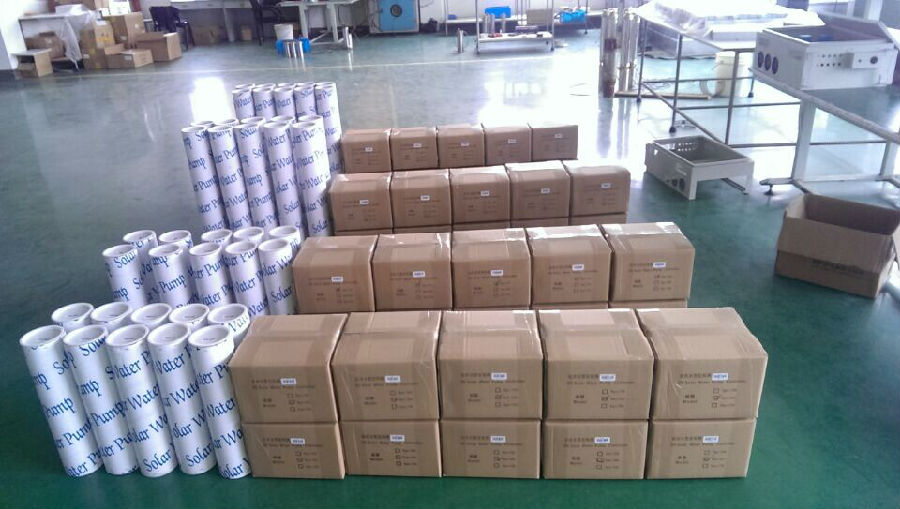
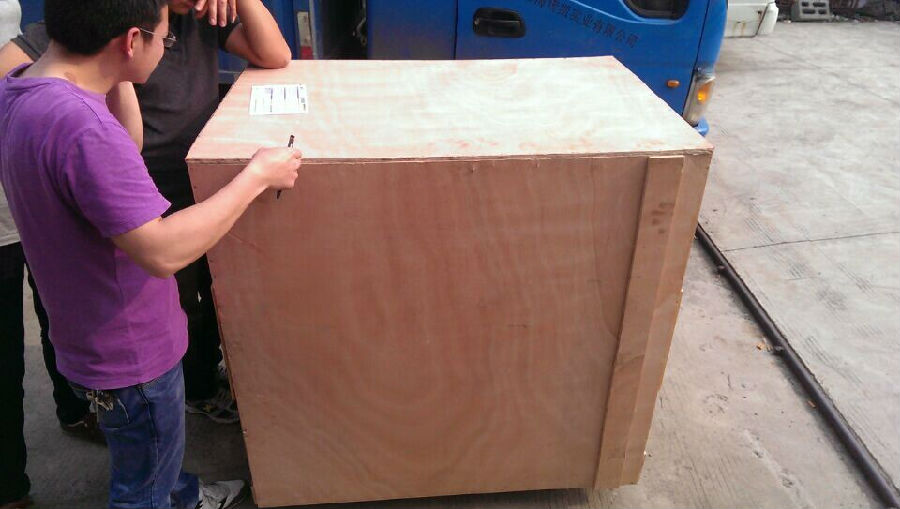
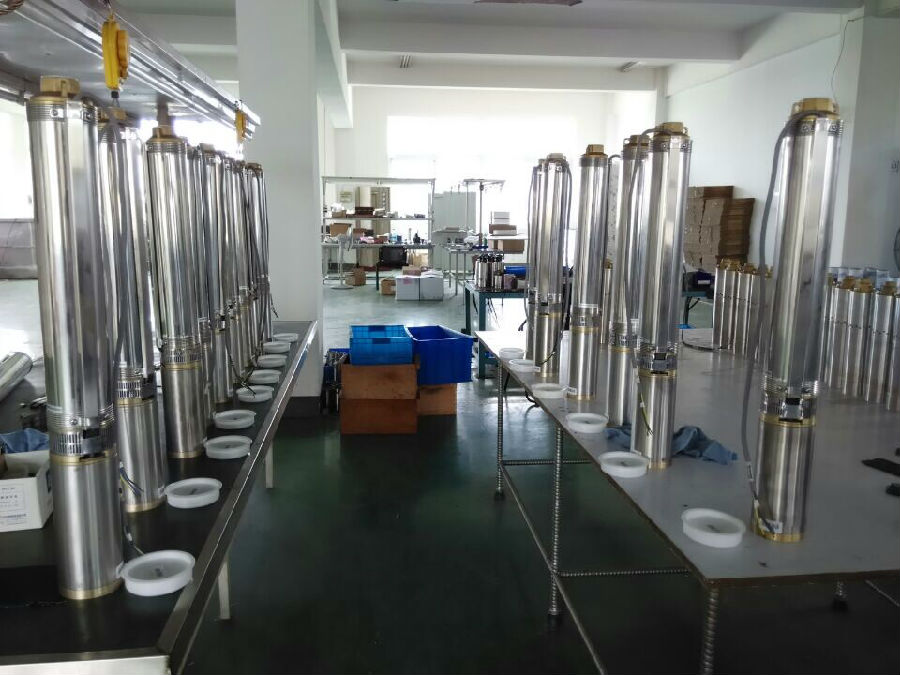
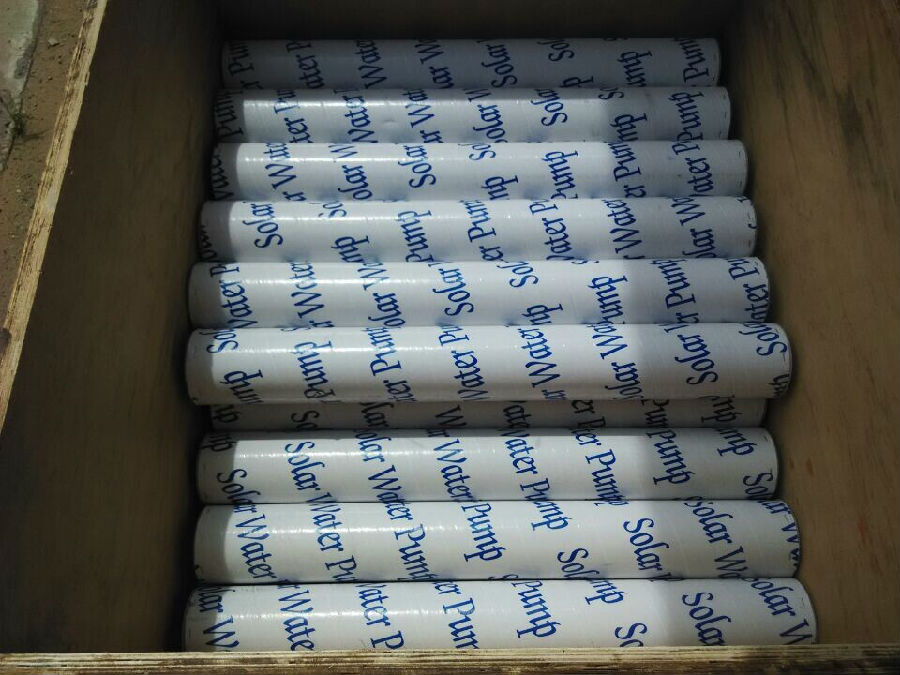
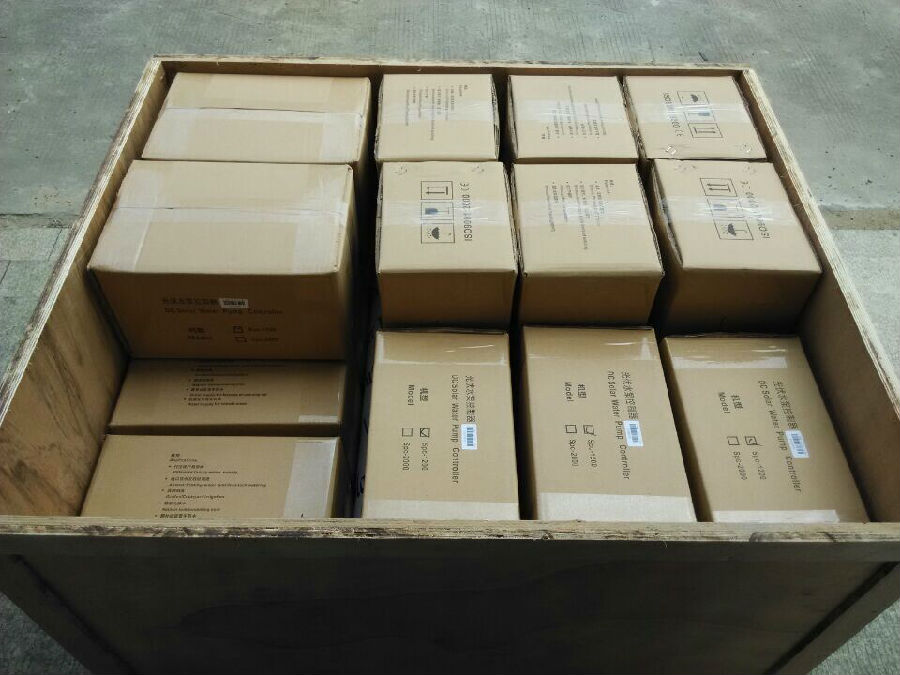
- Q: How does a solar pump handle fluctuations in water demand?
- A solar pump handles fluctuations in water demand by adjusting its output based on the availability of sunlight. When there is high demand, the pump operates at its maximum capacity, utilizing the energy from sunlight efficiently. During periods of low demand, the pump slows down or even shuts off, conserving energy and ensuring optimal use of available resources.
- Q: Can a solar pump be used for water circulation in hot tubs or spas?
- Yes, a solar pump can be used for water circulation in hot tubs or spas. Solar pumps are designed to circulate water using energy from the sun, making them an eco-friendly and cost-effective option for water circulation. They can help maintain the desired water temperature in hot tubs and spas, ensuring a comfortable and enjoyable experience for users. Additionally, solar pumps are typically low maintenance and durable, making them a reliable choice for water circulation in these types of recreational settings.
- Q: Can a solar pump be used for water supply in oil refineries or petrochemical plants?
- Yes, a solar pump can be used for water supply in oil refineries or petrochemical plants. Solar pumps are a sustainable and efficient solution for water supply in various industrial applications, including those in the oil and petrochemical industry. They can help reduce energy costs and dependence on traditional power sources, making them a viable option for water supply in these facilities.
- Q: What is the maximum depth a solar pump can reach?
- The maximum depth a solar pump can reach depends on various factors such as the power of the solar panels, the efficiency of the pump, and the quality of the water source. However, on average, solar pumps can typically reach depths of up to 100-200 feet.
- Q: How do I calculate the total head or lift required for a solar pump system?
- To calculate the total head or lift required for a solar pump system, you need to consider several factors. Here are the steps to help you calculate it: 1. Determine the total dynamic head (TDH): TDH is the sum of all the vertical and horizontal distances the water needs to be pumped. To calculate TDH, measure the vertical distance from the water source to the highest point of discharge and add it to the horizontal distance between the source and the discharge point. Additionally, consider the frictional losses caused by the pipe diameter and length. 2. Calculate the pressure head: Pressure head is the vertical distance the water needs to be lifted. Measure the vertical distance between the water source and the highest point of discharge. This measurement will determine the pressure required to pump the water to that height. 3. Account for losses and factors: Consider any losses due to pipe diameter, bends, elbows, or valves in the system. These losses can be calculated using established equations or manufacturer data. Additionally, account for factors such as temperature, elevation, and the density of the liquid being pumped, as they can affect the pump's performance. 4. Determine the flow rate: The flow rate is the volume of water that needs to be pumped in a given time. It is usually measured in liters per minute (LPM) or gallons per minute (GPM). To determine the flow rate, consider the amount of water required for your specific application, such as irrigation or household needs. 5. Select an appropriate pump: Once you have calculated the TDH, pressure head, losses, and flow rate, you can select a solar pump that meets these requirements. Refer to the pump manufacturer's specifications and technical data to ensure that the pump can handle the calculated TDH and flow rate. It is important to note that these calculations provide an estimate, and it is recommended to consult with a professional or pump manufacturer to ensure accurate results for your specific solar pump system.
- Q: Can a solar pump be used for water supply in food processing or beverage industries?
- Yes, a solar pump can be used for water supply in food processing or beverage industries. Solar pumps are a sustainable and cost-effective solution that can provide a reliable water supply for various industrial applications, including food processing and beverage production. These pumps can efficiently deliver water for cleaning, sanitization, and other essential processes, reducing reliance on traditional electricity and promoting environmental sustainability in the industry.
- Q: Can a solar pump be used for water circulation in a pond or lake?
- Certainly! A solar pump is capable of facilitating water circulation in both ponds and lakes. These pumps are specifically designed to function using solar energy, rendering them an optimal and environmentally friendly choice for outdoor water circulation. Typically, these pumps utilize solar panels to convert sunlight into electricity, which subsequently powers the pump and enables the circulation of water. Maintaining a healthy ecosystem in ponds and lakes necessitates water circulation as it fosters the oxygenation of water, prevents stagnation, and curbs the growth of detrimental organisms such as algae. The installation of solar pumps is effortless and demands minimum upkeep, thereby providing a convenient and cost-effective solution for water circulation in ponds and lakes.
- Q: Can solar pumps be used for water supply in off-grid cabins or vacation homes?
- Yes, solar pumps can be used for water supply in off-grid cabins or vacation homes. Solar pumps are an efficient and sustainable solution that can provide a reliable source of water without the need for grid electricity. They harness solar energy to power the pump, allowing for a continuous supply of water even in remote locations. This makes them an ideal choice for off-grid cabins or vacation homes where access to traditional power sources may be limited.
- Q: Does the size of the solar panel affect the performance of the pump?
- The performance of the pump is indeed affected by the size of the solar panel. The solar panel is in charge of converting sunlight into electrical energy, which is what powers the pump. A bigger solar panel has the ability to produce more electricity, giving the pump a higher power output. This increased power output allows the pump to operate more efficiently and effectively, resulting in a higher flow rate or achieving a greater lift height. Conversely, if the solar panel is smaller, it may not generate enough electricity to meet the power requirements of the pump. This could lead to reduced performance and potentially lower flow rates or lift heights. Therefore, it is crucial to select the appropriate size of the solar panel to ensure optimal performance of the pump.
- Q: Can a solar pump be used in conjunction with a water storage reservoir?
- Yes, a solar pump can be used in conjunction with a water storage reservoir. Solar pumps are designed to run on solar power, which means they can operate independently from the electrical grid. They use solar panels to convert sunlight into electricity, which powers the pump and allows it to move water from one location to another. In the case of a water storage reservoir, the solar pump can be used to fill the reservoir with water during the day when the sun is shining, and then the stored water can be used as needed, even when the sun is not available. This setup provides a sustainable and efficient way to store and distribute water using renewable energy.
Send your message to us
5 Hp Solar Borehole Water Pump
- Loading Port:
- Shanghai
- Payment Terms:
- TT OR LC
- Min Order Qty:
- -
- Supply Capability:
- 300 set/month
OKorder Service Pledge
Quality Product, Order Online Tracking, Timely Delivery
OKorder Financial Service
Credit Rating, Credit Services, Credit Purchasing
Similar products
Hot products
Hot Searches
Related keywords

